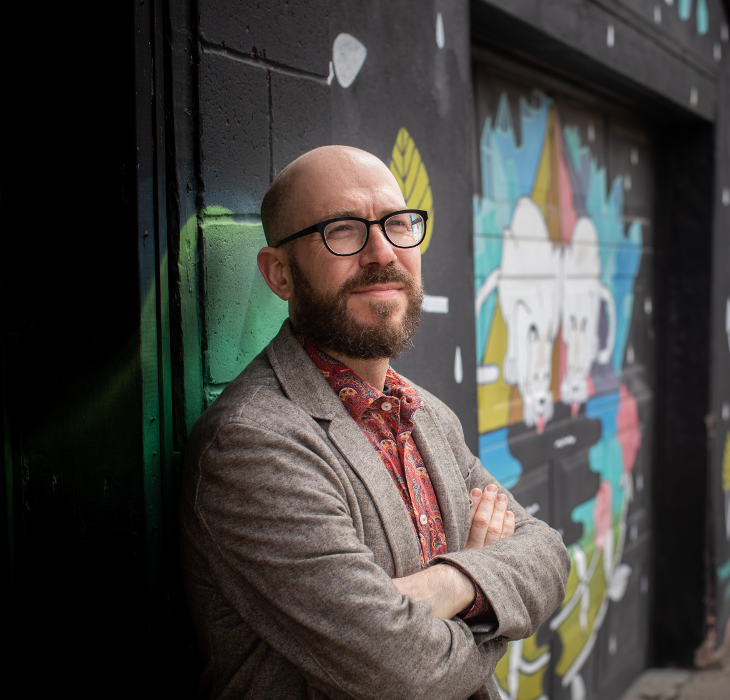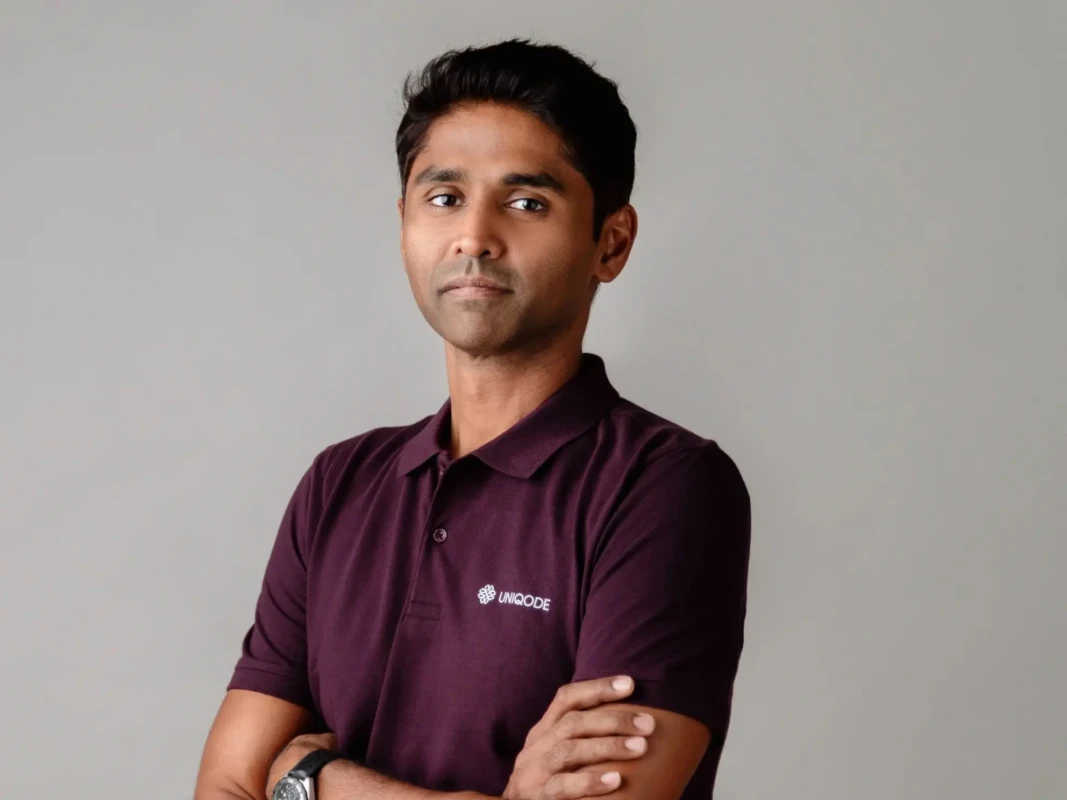Merck KGaA, Darmstadt, Germany, a leading science and technology company, announced today that the Heinrich Emanuel Merck Award has been bestowed upon Alán Aspuru-Guzik (48), professor of chemistry and computer science at the University of Toronto, Canada, in recognition of his groundbreaking innovations in computational sciences.
The award ceremony, held at the Stadttheater Lindau in conjunction with the Lindau Nobel Laureate meeting, highlighted the critical role of computational sciences in driving transformative research and fostering collaboration between academia and industry.
“My research interests are in areas that are poised to disrupt the chemical sciences. We have pioneered algorithms for near-term quantum computers, and artificial intelligence and robotics for new materials. Recently we have focused strongly on AI agents that do science,” Aspuru-Guzik elaborated when receiving the prize in Lindau. “Receiving the Heinrich Emanuel Merck Award is a testament to the exceptionally talented, motivated, and collaborative Matter Lab research group that we have assembled at the University of Toronto.”
“Today we celebrate not just individual achievements, but a shared commitment to accelerating scientific discovery – driving breakthroughs that transform lives and open entirely new frontiers for innovation,” Laura Matz, Chief Science and Technology Officer at Merck KGaA, Darmstadt, Germany, said in her laudatory speech.
Aspuru-Guzik was awarded for his work as a leading researcher at the intersection of quantum information, quantum computing, artificial intelligence, automation, and chemistry. The award also honors his dedication to accelerating scientific discovery and finding novel materials. His work includes utilizing generative machine learning to optimize wave functions for quantum simulations. Additionally, he has made a significant contribution toward the development of self-driving laboratories (SDLs) that leverage Al and automation – as exemplified by his successful identification of top-performing organic lasers.
The innovative work at the lab of Aspuru-Guzik also includes integrating quantum components into drug discovery pipelines, showcasing the potential of hybrid quantum-classical systems in generating viable drug options. Through these efforts, Aspuru-Guzik’s team is making significant contributions to advancing materials science and chemistry.
The awardee is also the CIFAR AI Chair at the Vector Institute in Toronto, Director of the Acceleration Consortium at the University of Toronto, and Senior Director of Quantum Chemistry at NVIDIA.
The Heinrich Emanuel Merck award not only honors individual achievements, but also serves as a catalyst for future innovation and collaboration in the field of computational sciences. Worth € 15,000, it recognizes scientists whose work focuses on new methods in chemical analysis and their development in applications in fields such as life sciences, environmental protection, and biosciences. Since 2025, the award has shifted focus to recognize innovations in computational sciences, reflecting the transformative impact of these fields.
Heinrich Emanuel Merck Award
Merck KGaA, Darmstadt, Germany, began granting the Heinrich Emanuel Merck Award in 1988 to mark the centennial of the first standardization of analytical methods by Dr. Karl Krauch, a chemist at Merck KGaA, Darmstadt, Germany. This list of the prizewinners documents the significance of the prize in the analytical sciences community, which has often laid the groundwork for important discoveries.
Former winners of the Heinrich Emanuel Merck Award are:
| Name | Year | Institution, country |
| Dr. Valérie Gabelica | 2022 | Institut Européen de Chimie et Biologie (Univ. Bordeaux, INSERM & CNRS), France |
| Prof. David Alsteens | 2019 | UC Louvain, Belgium |
| Prof. Francesco Ricci | 2017 | University of Rome, Italy |
| Prof. Petra Dittrich | 2015 | ETH-Zürich, Switzerland |
| Prof. Aaron Wheeler | 2012 | University of Toronto, Canada |
| Prof. Luisa Torsi | 2010 | University of Bari, Italy |
| Dr. Alexander Makarov Prof. Shuming Nie | 2007 2007 | Thermo Fisher Scientific, Germany Emory University, Atlanta, USA |
| Prof. Yoshinobu Baba | 2004 | University of Tokushima, Japan |
| Prof. Jonathan V. Sweedler | 2002 | University of Illinois, USA |
| Prof. Norman Dovichi | 2000 | University of Alberta, Canada |
| Prof. Renato Zenobi | 1998 | ETH-Zürich, Switzerland |
| Prof. D. Jed Harrison Prof. Andreas Manz | 1996 1996 | University of Alberta, Canada Imperial College London, United Kingdom |
| Prof. Aviv Amirav | 1993 | University of Tel Aviv, Israel |
| Dr. Brian A. Bidlingmeyer Prof. Reinhard Niessner | 1990 1990 | Millipore Corporation, USA Technical University München, Germany |
| Prof. Mastaka Hiraide Prof. Otto S. Wolfbeis | 1988 1988 | University of Nagoya, Japan University of Graz, Austria |
Heinrich Emanuel Merck (1794-1855)
Heinrich Emanuel Merck was a direct descendant of Merck KGaA, Darmstadt, Germany’s founder Friedrich Jacob Merck, who had received a privilege for a pharmacy — later known as Engel-Apotheke — in Darmstadt in 1668. Heinrich Emanuel Merck was occupied with research, which was unusual at the time. His teachers included the Erfurt pharmacist and reformer of the pharmaceutical field, Johann Bartholomaeus Trommsdorff and the chemical analyst Martin Heinrich Klaproth as well as the phytochemist Sigismund Friedrich Hermbstaedt. The latter two both lectured at the university in Berlin.
In 1816, Heinrich Emanuel Merck took over his father‘s pharmacy in Darmstadt, which his family had owned since 1668. Soon afterwards, Heinrich Emanuel Merck began working intensively on a new field of analytical chemistry at his lab in the pharmacy: alkaloids. His experiments to isolate and characterize the known alkaloids led to the start of bulk production in 1827, which enjoyed immediate success. In his „Cabinet of pharmaceutical and chemical innovations“, Heinrich Emanuel Merck presented 16 alkaloids for scientific experiments to his fellow experts and doctors. Heinrich Emanuel Merck was well known among his customers for the purity of the alkaloids he sold.
In 1888, Dr. Carl Krauch (1853-1934), chief analytical chemist at Merck KGaA, Darmstadt, Germany, published the first analytical standard work, a short book titled „Testing chemical reagents for purity“. In the same year, Merck KGaA, Darmstadt, Germany, announced that from then on, it would only introduce reagents to the market that complied with Krauch’s purity criteria described in this book. This marked the beginning of the era of reagents of guaranteed purity and of modern thinking in analytical chemistry.



